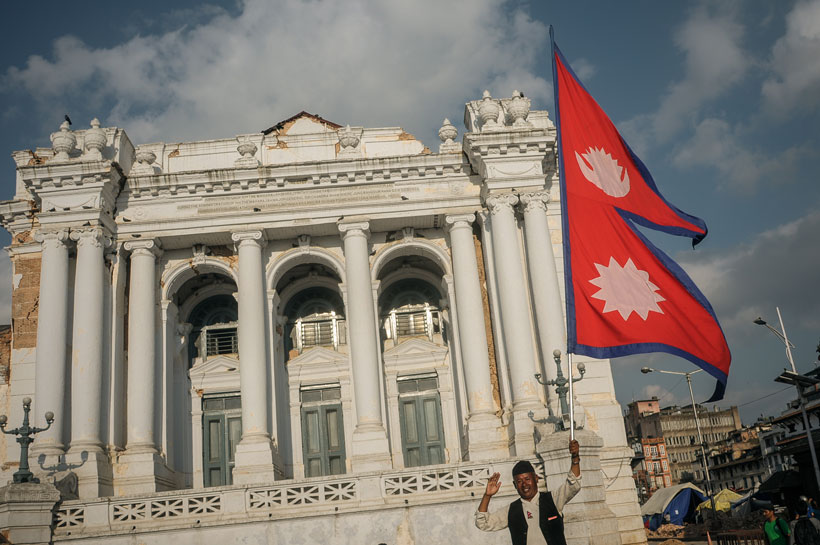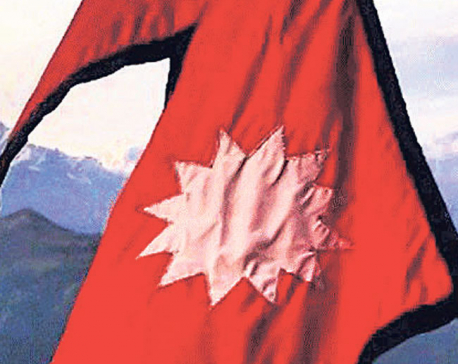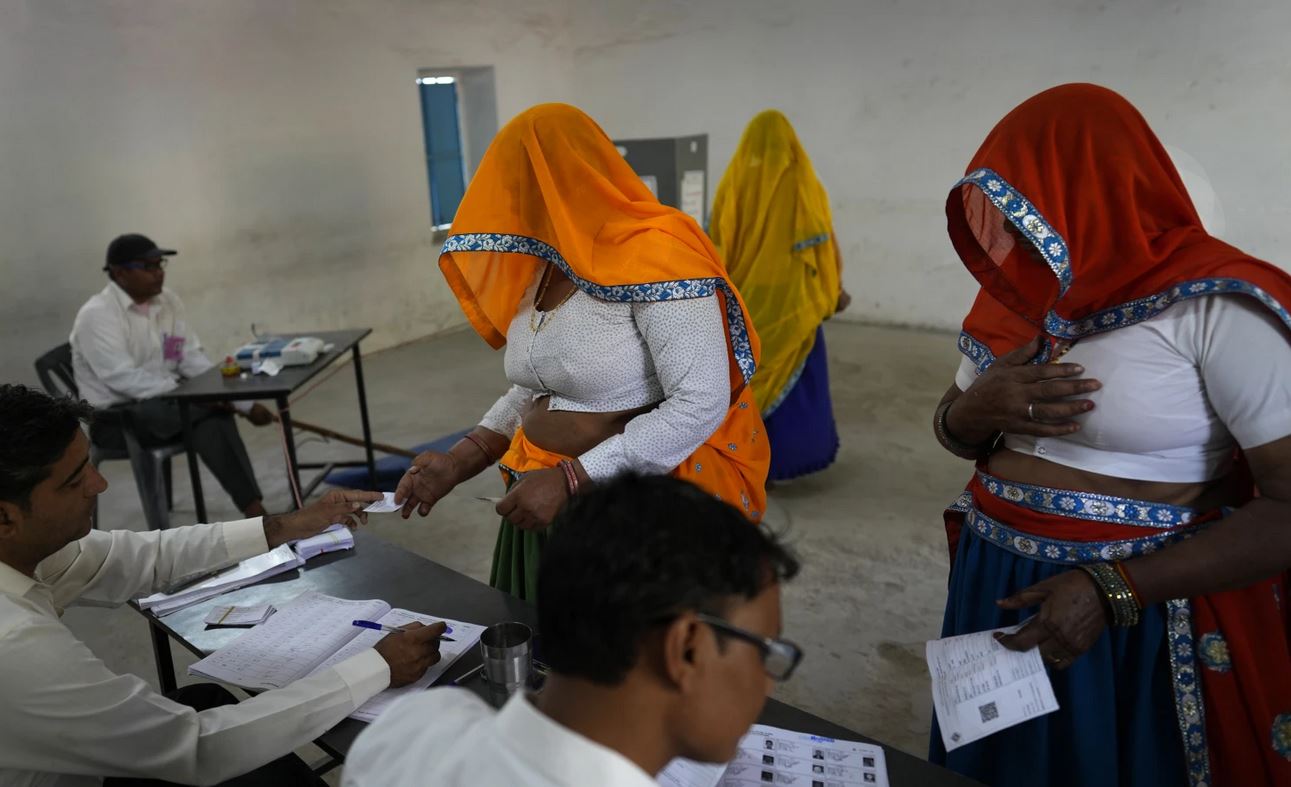
OR

During the Olympics last month, the BBC, or more specifically a reporter from the institution, placed our national anthem third on his list of most unforgettable anthems at Rio 2016. In his own words our anthem ‘doesn’t try to sound like a military march or a church hymn but it sounds like a joyous Nepali pop song, the sort of music you hear blaring out of taxis in Kathmandu’. Not that it was a revelation to any of us but he really hit the nail on the head in his description of our anthem.
For those of a certain age brought up on the rousing renditions of ‘Shriman Gambhir’ sung every day in school and public functions, it’s fair to say that the ‘folksy’ nature of this anthem still takes some getting used to, and you certainly won’t be faced with a shortage of people bemoaning this fact. This ‘pop song’ tag to our anthem is a double-edged sword that perhaps explains its apparent ‘trivialization’ – by which I mean people liberally using the tune and or words to serve their own purposes without giving it a second thought. Although I’ve noticed it before, it somehow seems more rampant now than ever.
Take for example, the people who choose to have it as their mobile ringtone complete with words and everything. This trend is not really exclusive to the type of chest thumping, ‘Oli bandwagon jumping’ nationalists that seem to abound these days but people who may not know any better. Those who do this no doubt mean no disrespect. On the contrary, I suppose, it is the exact opposite and done ostensibly as a display of patriotism.
But surely, I can’t be the only one thinking that this display of patriotism is – to put it mildly – a little misplaced. Whatever your reason or the magnitude of your patriotism, it’s certainly not okay to have the national anthem as your ringtone even if you’re the Prime Minister of the country. This sort of ubiquity – engendered through mobile ringtones – serves our anthem no purpose except to undermine its sanctity.
It’s not just exclusively limited to ringtones though, because I’ve heard it blared on public transport, and its words and/or music appropriated for a variety of purposes and occasions including being used (bizarrely enough) in a game of ‘antakshari’, as chimes for wall clocks, and protest programs. I don’t know if I’m old fashioned (and wrong) or not but the national anthem should only be used for ceremonial purposes or occasions that are observed in solemnity.
The majority of us were brought up to respect the national anthem and this involves showing deference whenever it is played – namely ceasing our activities and standing still out of respect. It has now become so common to hear it in situations and places where it just is not possible for us to maintain the required propriety befitting that of a national anthem. If this trend continues then I’m afraid the citizenry may eventually become desensitized to the requirement to pay respect to our national anthem.
This is not peculiar to Nepal only because I’ve noticed something similar in India too where you would end up singing the national anthem before films in cinemas where a lot of people were worse for wear or even just milling about looking for their seats whilst it was being played. Why play the anthem in places or situation where you can’t guarantee a certain level of decorum?
A lot of other countries also have national songs that – while not replacing the official anthem – do a good job of stirring up similar emotions and, more saliently, do not call for the listener to maintain the propriety expected for a national anthem. For example, ‘Vande Mataram’ in India or ‘Jerusalem’ in the case of sporting events in the UK can be sung or played as a reflection of patriotic fervour without the formalities that the national anthem calls for.
Maybe we should adopt one of our own too as a sort of ‘proxy’ to our national anthem. I was curious to know if we even had any contenders for it, but speaking to a few people yielded a rather diverse set of choices. More often than not, a nomination was accompanied by a multitude of reasons as to why it cut the mustard to be selected as ‘the’ national song. Apparently, in Nepal it’s not just in politics that consensus remains elusive and I suspect that even if my unscientific survey was to be broadened in scope, we still wouldn’t be able to come to a decision any time soon. But if there’s one thing we can all (hopefully) agree on, it is that our anthem deserves a little more dignity than we all currently afford it.
gunjan.u@gmail.com
You May Like This

Our Nepal, Our Pride
Our heaven on Earth, Nepal, our Pride, Our domicile of God is free as infinite As the sun’s portentous rays... Read More...

Modern farming changing women's economic status
DOTI, Dec 10: Harina Khatri of Hirapura village used to feel that the six ropanis of land she had was simply... Read More...

'Our journey to ICCWC Selection match is not over yet', Nepal National Cricket Team
KATHMANDU, Aug 19: The National Cricket Team which had been to the Netherlands to play in the ICC World Cricket... Read More...





Just In
- NEPSE lost 53.16 points, while investors lost Rs 85 billion from shares trading last week
- Rainbow tourism int'l conference kicks off
- Over 200,000 devotees throng Maha Kumbha Mela at Barahakshetra
- Indians vote in the first phase of the world’s largest election as Modi seeks a third term
- Kushal Dixit selected for London Marathon
- Nepal faces Hong Kong today for ACC Emerging Teams Asia Cup
- 286 new industries registered in Nepal in first nine months of current FY, attracting Rs 165 billion investment
- UML's National Convention Representatives Council meeting today





_20220508065243.jpg)







Leave A Comment